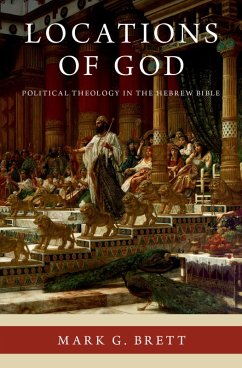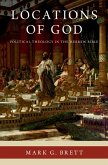The Hebrew Bible is hardly what might be called a "unified" account of the national history of Israel. The texts, with their myriad genres and competing perspectives, show the forming and re-forming of Ancient Israel's social body in a number of geographical settings. The communities are shown in and out of political power. We read about in-fighting and peace, good kings and bad, freedom and subjugation. Ultimately, the Hebrew Bible is a text about nationhood and empire in the ancient world. Critical reflection on the intersections of religious and political life -- which includes such topics as sovereignty, leadership, law, peoplehood, hospitality, redemption, creation, and eschatology -- can be broadly termed "Political Theology." In
Locations of God, Mark G. Brett focuses primarily on the historical books of the Bible, comparing them with selected prophetic and wisdom books, setting all of them against the lived realities under the shadow of successive empires. Brett suggests that national ideas and their imperial alternatives were woven into the biblical traditions by authors who enjoyed very little in the way of political sovereignty. Using political theology to motivate the discussion, Brett shows us just how the earthly situation of ancient Israel contributed to its theology as reflected in the Hebrew Bible.
Dieser Download kann aus rechtlichen Gründen nur mit Rechnungsadresse in A, B, BG, CY, CZ, D, DK, EW, E, FIN, F, GR, HR, H, IRL, I, LT, L, LR, M, NL, PL, P, R, S, SLO, SK ausgeliefert werden.









